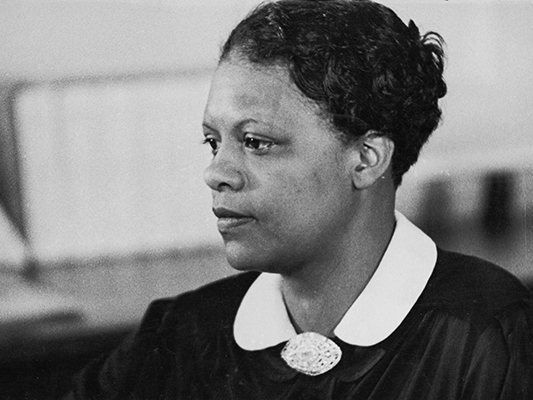Eunice Carter

Born: July 16, 1899, Atlanta, Georgia
Died: January 25, 1970, New York City
Nicknames: None
Associations: Thomas Dewey, Lucky Luciano
Eunice Hunton Carter was the first African-American woman to work as a prosecutor in the New York County (Manhattan) District Attorney’s Office. As a key assistant to special prosecutor Thomas Dewey, she is credited with establishing key facts in the prosecution of mobster Charlie “Lucky” Luciano.
Carter might seem an unlikely hero to bring down the “chairman of the board” of the Five Families of New York, but everyone knew she was smart. She graduated cum laude from Smith College in 1921 with both undergraduate and graduate degrees, then earned her law degree from Fordham Law School in 1932 – the first black woman to graduate from that school.
She was a social worker in New York City before Mayor Fiorello LaGuardia appointed her as a prosecutor in what was then called “women’s court” — that is, a court for the prosecution of women, especially prostitutes.
What Carter saw there was interesting: It appeared that women arrested for prostitution from all over New York City were represented by the same lawyers and bail bondsmen. And those agents had a relationship with Charlie “Lucky” Luciano. Bringing that information to Dewey, Carter meticulously built a case that led to raids of brothels in the city and, finally, the successful prosecution of Luciano, at the time the most powerful racketeer in the country.
Carter and Dewey established that prostitutes were required to kick back half of their earnings to crime bosses in exchange for legal representation – in effect, Luciano was profiting from prostitution. Luciano was sentenced to 30 to 50 years in 1936. (Luciano was released from prison and deported to Italy 11 years later in exchange for his help in preventing problems on the New York City docks during World War II.)
Carter continued working with Dewey and the District Attorney’s Office until 1945, when she entered private practice. She was active with the United Nations, the National Council of Negro Women and the YWCA until her death in 1970.




